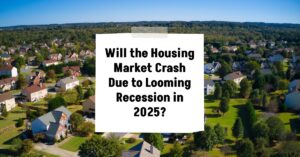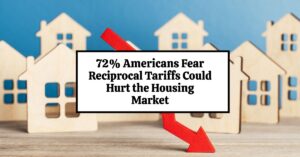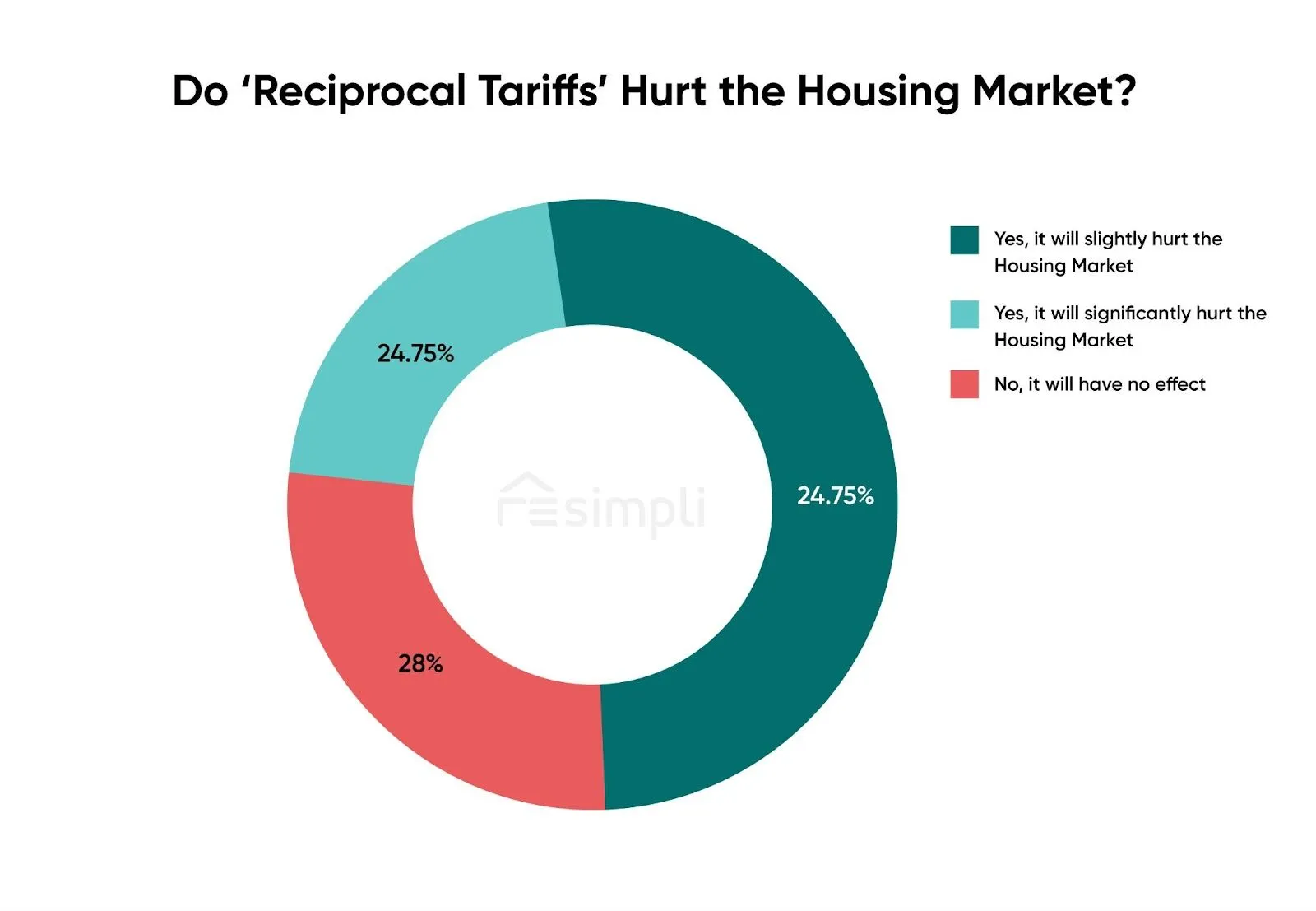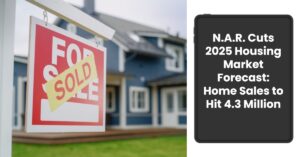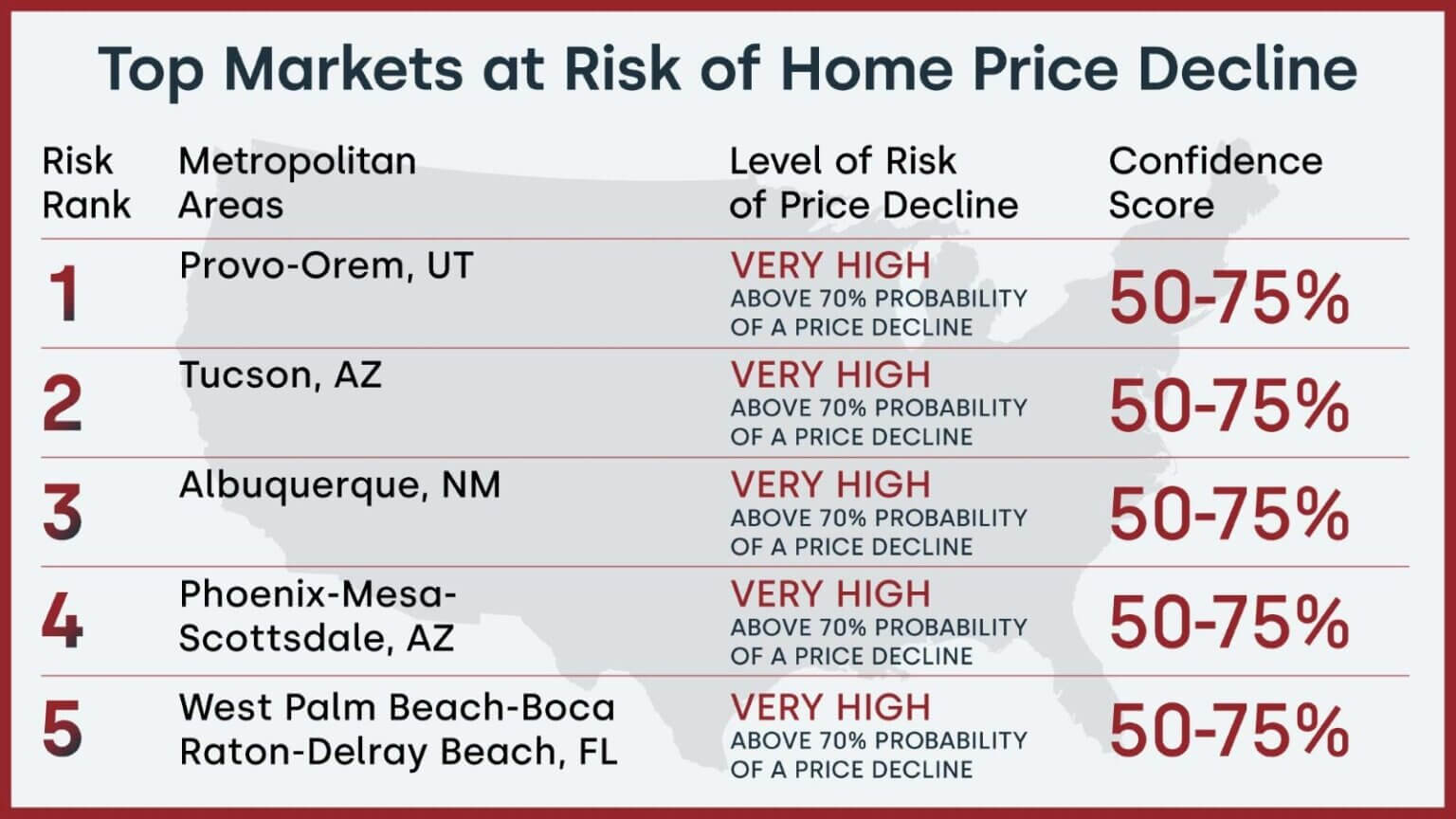Is that R-word – recession – starting to creep into your conversations more often? If you're anything like me, you're probably glued to the news, wondering what it all means for your wallet, your job, and heck, maybe even your dream of owning a home, or the value of the home you already have. One question that seems to be on everyone's mind is: Will the housing market crash due to an upcoming recession? Let's get straight to the point: most experts, including those at real estate giant Redfin, don't foresee a housing market crash even if we do enter a recession. Instead, expect a cooling down, not a collapse.
Will the Housing Market Crash Due to Looming Recession in 2025?
Now, I know what you might be thinking: “Cooling down? Is that just fancy talk for ‘prices will still be crazy high'?” Well, it's a bit more nuanced than that. Let's dive into why the housing market isn't likely to implode like some might fear, and what we can realistically expect if the economy takes a turn.
Why a 2008-Style Housing Market Crash is Unlikely This Time Around
We all remember 2008, right? The words “housing market crash” still send shivers down many spines. But, thankfully, the situation today is quite different. According to a recent Newsweek report, and backed by my own understanding of the market, several key factors are at play that are acting as strong shields against a dramatic housing market collapse.
- Locked-in Low Mortgage Rates: A Safety Net for HomeownersThink back to the pandemic era. Interest rates were at rock bottom. Millions of homeowners, including myself, jumped at the chance to refinance or buy with super low mortgage rates. This is a huge deal! As Redfin economist Chen Zhao points out, these homeowners have essentially “locked in ultra-low mortgage rates.” Even if a recession hits and job losses occur, these folks are sitting pretty with manageable monthly payments. They are far less likely to be forced to sell their homes compared to someone with a variable-rate mortgage or a high-interest loan. This creates a stability we didn't have before 2008.
- Home Equity is a Powerful CushionRemember the crazy home price appreciation we've seen in the past few years? While it made buying a home feel impossible for some, it's actually created a significant safety net now. Most homeowners today have substantial equity in their homes. This means they owe much less on their mortgage compared to what their house is currently worth. Even if prices were to soften a bit (which is different from crashing!), most homeowners would still be far from being “underwater” – owing more than the home's value. As Zhao mentioned, even if someone is a little underwater, the motivation to hold onto the property is strong, because there's still value there and the potential for future appreciation.
- We Learned Lessons from the 2008 CrisisThe 2008 housing crash was partly fueled by risky lending practices – remember those subprime mortgages and “no-doc” loans? Lenders were giving mortgages to pretty much anyone, regardless of their ability to repay. Thankfully, regulations are much tighter now. Lenders are more careful, and borrowers are generally more qualified. This means we don't have the same shaky foundation in the mortgage market that led to the previous crisis. In my opinion, this stricter lending environment is one of the biggest reasons why a repeat of 2008 is highly improbable.
- Mortgage Servicers Are More Prepared to HelpAnother positive shift is how mortgage companies handle delinquencies. In the past, foreclosure was often the go-to solution. Now, mortgage servicers are much more willing to work with homeowners facing financial hardship. Options like mortgage forbearance (temporarily pausing payments) and loan modifications (changing loan terms to make payments more affordable) are more readily available. This proactive approach can help prevent foreclosures and keep people in their homes, further stabilizing the housing market.
Who Might Feel the Pinch? It's Not All Sunshine and Roses
While a full-blown housing market crash seems unlikely, it's not to say that everyone will be completely unscathed by a recession. Certain groups and situations could feel more pressure.
- Renters May Face Job Losses and Shifting RentsThe Newsweek report highlights that renters are often more vulnerable during economic downturns. Recessions tend to hit lower-income individuals harder, and renters are statistically more likely to fall into this category. Job losses could make it difficult for renters to afford housing, but on the flip side, a decrease in demand due to job losses could also potentially drive rents lower. So, while renters might face immediate economic challenges, they could also see some relief in the rental market itself.
- Recent Homebuyers in Hot Markets: A Bit More VulnerableLet's be real, those who bought homes very recently, especially at the peak of the market with higher prices and higher interest rates, might feel a bit more anxious. If home values stagnate or even dip slightly in their area, and they face job insecurity, they could be in a tighter spot. However, even for these buyers, there's a potential silver lining. As the Newsweek article points out, “if rates drop enough, these individuals could refinance and see their monthly payment shrink considerably.” Historically, mortgage rates tend to fall when the economy weakens. Refinancing could offer a lifeline and make their payments more manageable.
Recommended Read:
Fannie Mae Lowers Housing Market Forecast and Projections for 2025
Housing Market Forecast 2025 by JP Morgan Research
Housing Predictions 2025 by Warren Buffett's Berkshire Hathaway
What to Expect: A Cooling Market, Not a Deep Freeze
So, if a crash isn't in the cards, what should we anticipate for the housing market if a recession hits? The consensus seems to be a cooling.
- Slower Sales and More InventoryWe're already seeing signs of this cooling. Homes are staying on the market a bit longer, and the frenzy of bidding wars has definitely subsided in many areas. A recession would likely accelerate this trend. People might be more hesitant to buy or sell, leading to slower sales. This also means inventory – the number of homes available for sale – could increase, giving buyers more choices and less pressure.
- Price Stabilization or Moderate Price SofteningInstead of prices plummeting, experts predict more of a stabilization or perhaps a moderate softening in some markets. This means we might not see the crazy double-digit price growth of the past few years, and in some overheated areas, we might even see prices edge down a bit. For buyers who have been waiting for a break, this could actually be good news! It could create a window of opportunity to buy without facing insane competition and inflated prices.
Keep an Eye on the Signals, But Don't Panic
Like Newsweek mentioned, there are definitely recession indicators flashing – things like declining consumer confidence and shifts in financial markets. It's wise to stay informed and be prepared for potential economic changes. However, when it comes to the housing market, the data and expert opinions suggest we're heading towards a slowdown, not a catastrophic crash.
From my perspective, and based on what I'm seeing and reading, the housing market is proving to be more resilient than many might have feared. The safeguards in place, like locked-in low rates and healthy equity, are significant.
While things might feel a bit uncertain, especially with the constant recession talk, remember that a cooling market can actually be a healthier and more sustainable market in the long run. It can bring balance back and create opportunities for both buyers and sellers. So, take a deep breath, stay informed, and don't let recession fears alone scare you away from your housing goals.
Work with Norada in 2025, Your Trusted Source for Investment
in the Top Housing Markets of the U.S.
Discover high-quality, ready-to-rent properties designed to deliver consistent returns.
Contact us today to expand your real estate portfolio with confidence.
Contact our investment counselors (No Obligation):
(800) 611-3060
Read More:
- 4 States Facing the Major Housing Market Crash or Correction
- 5 Cities Where Home Prices Are Predicted To Crash in 2025
- New Tariffs Could Trigger Housing Market Slowdown in 2025
- Housing Market Forecast 2025: Affordability Crisis Will Continue
- Lower Mortgage Rates Will Reignite the Housing Demand in 2025
- NAR Predicts 6% Mortgage Rates in 2025 Will Boost Housing Market
- Housing Market Forecast for the Next 2 Years: 2024-2026
- Housing Market Predictions for the Next 4 Years: 2025 to 2028
- Housing Market Predictions for Next Year: Prices to Rise by 4.4%
- Housing Market Predictions for 2025 and 2026 by NAR Chief
- Real Estate Forecast Next 5 Years: Top 5 Predictions for Future
- 2008 Forecaster Warns: Housing Market 2024 Needs This to Survive
- Real Estate Forecast Next 10 Years: Will Prices Skyrocket?
